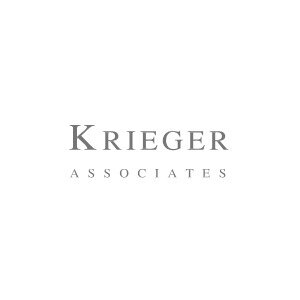Best Trusts Lawyers in Luxembourg
Share your needs with us, get contacted by law firms.
Free. Takes 2 min.
Or refine your search by selecting a city:
List of the best lawyers in Luxembourg
About Trusts Law in Luxembourg
Trusts law in Luxembourg is a unique area within the legal framework. While Luxembourg, being a civil law jurisdiction, does not traditionally have trusts as seen in common law countries like the UK or the US, it accommodates them through certain legislative adjustments. Luxembourg respects and enforces trusts established under foreign laws through private international law frameworks. This makes Luxembourg a strategic jurisdiction in terms of financial management and wealth structuring, making it possible to use common law trust mechanisms within its legal system under certain conditions.
Why You May Need a Lawyer
Engaging a lawyer in the realm of trusts in Luxembourg is often necessary for several reasons:
- Complexity of Law: Given that trusts are not indigenous to Luxembourg law, understanding how they are interpreted and applied requires specialized legal expertise.
- Estate Planning: Lawyers can offer guidance on setting up trusts as part of estate planning, ensuring wealth is managed and transferred according to your wishes.
- Asset Protection: A lawyer can help structure trusts in a way that offers protection against creditors and legal claims.
- Tax Efficiency: Trusts can be used to achieve tax efficiencies; legal advice ensures compliance with international tax obligations.
- Cross-Border Considerations: For individuals or families with assets in multiple countries, legal advice is crucial in navigating cross-border trust issues.
Local Laws Overview
The legal landscape for trusts in Luxembourg is dynamic and often requires a comprehensive understanding of both local and international laws:
- Recognition of Foreign Trusts: Luxembourg recognizes trusts governed by foreign laws, predominantly through the Hague Convention on the Law Applicable to Trusts and on their Recognition.
- Regulatory Environment: Financial institutions in Luxembourg can administer trusts, following stringent regulatory standards to prevent misuse and ensure transparency.
- Taxation: There are particular tax implications for trusts, where trusts are either transparent or opaque for tax purposes, impacting how income and assets are taxed.
- Fiduciary Duties: Trustees have specific duties under Luxembourg law, including the duty of loyalty, duty to act prudently, and duty to inform beneficiaries.
Frequently Asked Questions
What is a trust?
A trust is a legal arrangement where one party (the trustee) holds and manages assets on behalf of another party (the beneficiary). The person creating the trust is known as the settlor.
Can I create a trust under Luxembourg law?
While you cannot create a trust under Luxembourg domestic law, you can establish a trust under the law of a jurisdiction that recognizes trusts and apply Luxembourg regulations accordingly.
How is a trust different from a will?
A trust can be effective during the settlor's lifetime (inter vivos) or upon their death (testamentary), while a will only takes effect upon death.
What roles do trustees play?
Trustees manage the trust's assets according to the trust deed and for the benefit of the beneficiaries, complying with fiduciary duties and relevant legal frameworks.
Are trusts public or private?
Trusts are generally private documents and do not become part of the public record, promising a level of privacy in estate planning.
What are the tax implications of trusts in Luxembourg?
The tax treatment of trusts depends on whether they are considered transparent or opaque and may involve both Luxembourg taxation and that of other jurisdictions where the trust assets or beneficiaries are located.
Can a trust own real estate?
Yes, a trust can hold real estate, though it requires careful structuring and compliance with applicable property laws and tax obligations.
Do trusts have to be registered in Luxembourg?
No, trusts themselves do not need to be registered; however, related financial institutions may need to adhere to local registration and reporting requirements.
How can laws from different countries affect my trust in Luxembourg?
Cross-border elements, such as the settlor, beneficiaries, or assets being located in different jurisdictions, can affect the legal and tax treatment of a trust, necessitating thorough legal counsel.
Can disputes arise regarding trusts?
Yes, disputes can occur, often relating to the interpretation of trust terms, the exercise of trustees' duties, or the rights of beneficiaries, making legal recourse in Luxembourg sometimes necessary.
Additional Resources
For further information and assistance regarding trusts in Luxembourg, consider the following resources:
- Luxembourg Bar Association: Information on legal practitioners specializing in trust law.
- Commission de Surveillance du Secteur Financier (CSSF): Regulatory insights related to trust management.
- Hague Conference on Private International Law: Resources on the international recognition of trusts.
- Luxembourg Private Banking Association (ABBL): Provides guidance on wealth management and trust services.
Next Steps
If you need legal assistance with trusts in Luxembourg, consider taking the following steps:
- Identify your needs: Clarify what you need from a trust and whether you require setting up a new trust or managing an existing one.
- Consult with a specialist: Engage with a legal advisor who specializes in international trusts and Luxembourg law.
- Prepare documentation: Gather all necessary documents and information related to your assets, beneficiaries, and existing legal arrangements.
- Schedule a consultation: Meet with your lawyer to discuss your options and the most effective way to proceed.
- Stay informed: Keep abreast of any changes in the legal framework relating to trusts in Luxembourg and worldwide, especially if your trust involves cross-border elements.
Lawzana helps you find the best lawyers and law firms in Luxembourg through a curated and pre-screened list of qualified legal professionals. Our platform offers rankings and detailed profiles of attorneys and law firms, allowing you to compare based on practice areas, including Trusts, experience, and client feedback.
Each profile includes a description of the firm's areas of practice, client reviews, team members and partners, year of establishment, spoken languages, office locations, contact information, social media presence, and any published articles or resources. Most firms on our platform speak English and are experienced in both local and international legal matters.
Get a quote from top-rated law firms in Luxembourg — quickly, securely, and without unnecessary hassle.
Disclaimer:
The information provided on this page is for general informational purposes only and does not constitute legal advice. While we strive to ensure the accuracy and relevance of the content, legal information may change over time, and interpretations of the law can vary. You should always consult with a qualified legal professional for advice specific to your situation.
We disclaim all liability for actions taken or not taken based on the content of this page. If you believe any information is incorrect or outdated, please contact us, and we will review and update it where appropriate.
Browse trusts law firms by city in Luxembourg
Refine your search by selecting a city.














